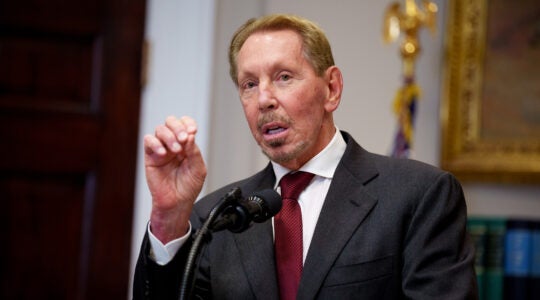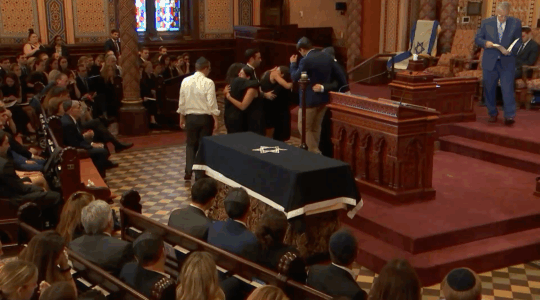LONDON, Oct. 24 (JTA) — Jews and Muslims in Britain often are at odds on issues of civil liberties and terrorism, but they’re united in opposing a bill that would require faith-based private schools to admit 25 percent of students from outside the main faith. As the bill was debated last week in the House of Lords, Jewish leaders were joined in their opposition to the bill by Catholic, Sikh and Hindu leaders, as well as Muslims. The Board of Deputies of British Jews last Friday announced the launch of a united “community voice” campaign to oppose the bill, in conjunction with other faith groups. The coordinated response comes after Education Secretary Alan Johnson said the government would back an amendment to the Education Bill giving local authorities the option of requiring new faith schools to give 25 percent of places to pupils from other faiths. At an Oct. 18 news conference, Johnson included existing as well as new faith schools, saying that even existing schools “must do more to defuse community tensions.” Johnson’s support was an attempt to tackle criticism that the ruling Labor Party’s expansion of faith schools will lead to segregation. The only religious community supporting the bill so far has been the Church of England, leading to questions about whether or not the bill would achieve its goal of integration. According to the Board of Deputies, there are only 40 Jewish schools, as compared with 4,000 Church of England schools and 2,500 Roman Catholic schools. Some members of Britain’s Jewish community fear the bill would signal the end of the Jewish day school system. “The consequences of Lord Baker’s amendment would be to exclude Jewish students from Jewish day schools,” said Jon Benjamin, chief executive of the board. “This would frustrate parental choice.” The Jewish community has noted the success of its education system, which has some of the country’s highest educational achievement and teaches about diversity and inclusion. Simon Goulden, chief executive of the United Synagogue’s Agency for Jewish Education, said, “We firmly believe that Jewish schools encourage communal harmony, active citizenship, social responsibility, a sense of national belonging and mutual respect.” The bill is expected to go back to the House of Commons for another reading Oct. 30.
JTA has documented Jewish history in real-time for over a century. Keep our journalism strong by joining us in supporting independent, award-winning reporting.





